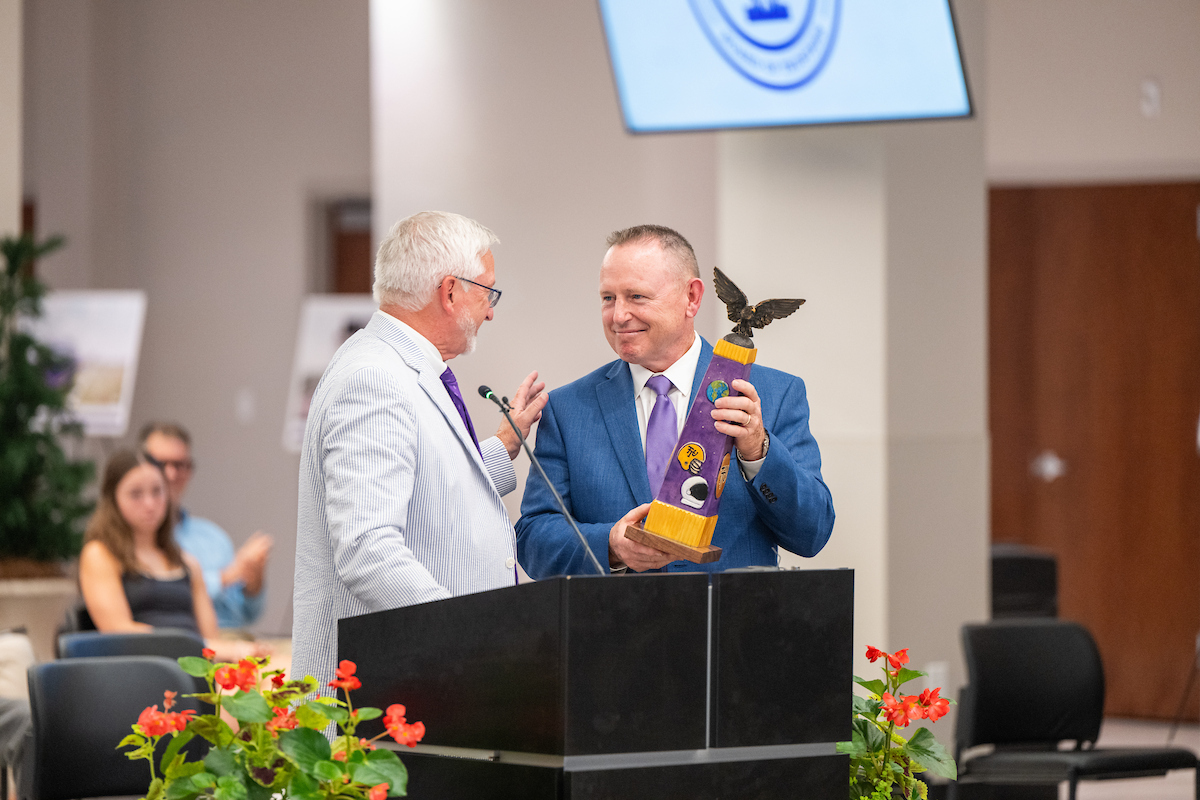Wilmore Way
Wilmore Way, a walkway through the heart of Tennessee Tech University’s campus, is a tribute to Tennessee Tech alumnus, U.S. Navy Captain and NASA Astronaut Barry “Butch” Wilmore. As you walk along Wilmore Way, we invite you to explore the milestones of his remarkable journey, from his roots at Tennessee Tech to his leadership aboard the International Space Station, and be inspired to aim high and live Wings Up.
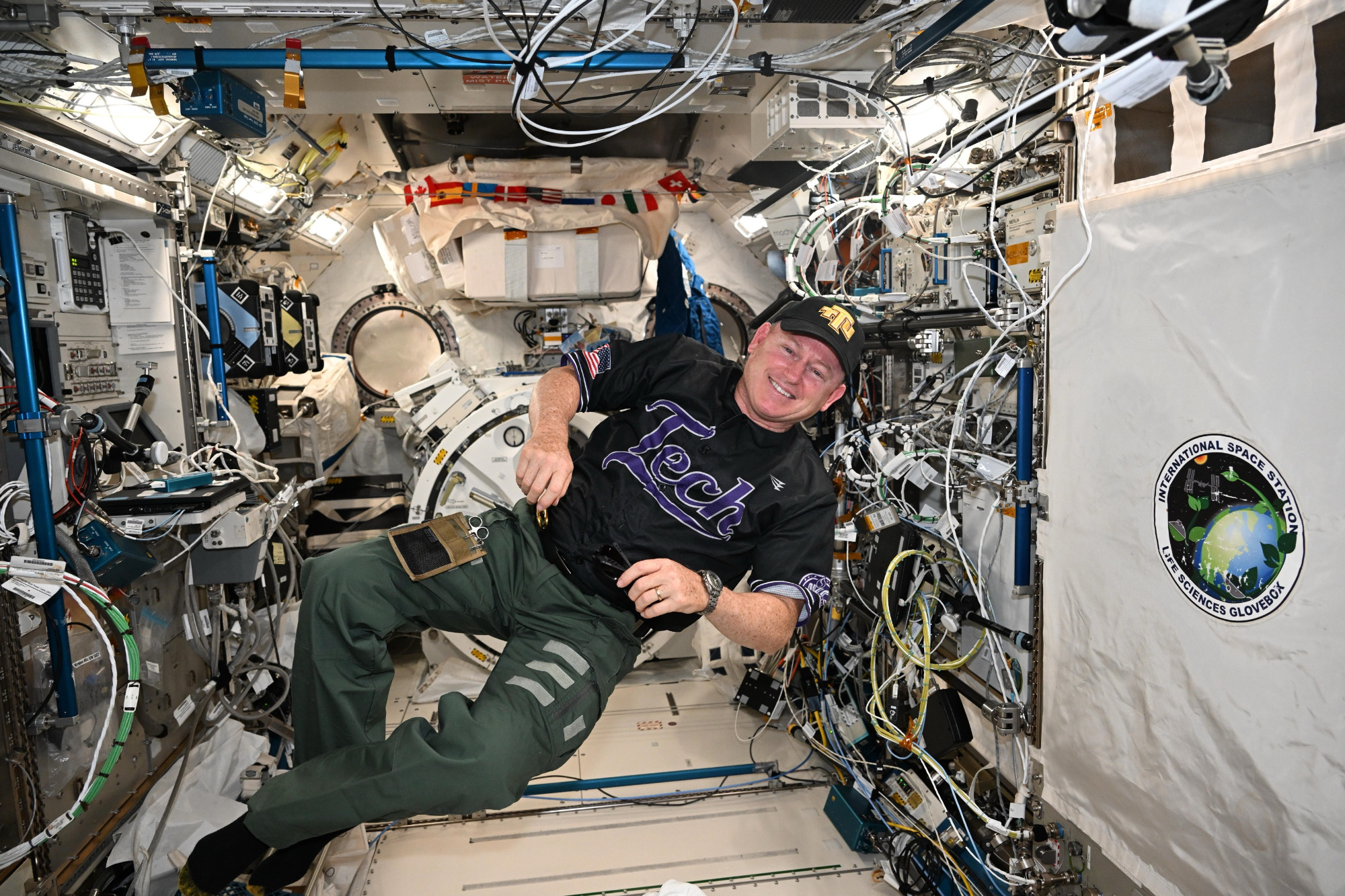
Tennessee Roots
Originally from Mt. Juliet, Tennessee, Barry “Butch” Wilmore had an early interest in aviation and science. He attended Mt. Juliet High School and grew up hearing stories of Tennessee Tech University.
Barry’s father Eugene Wilmore earned a degree in industrial management with a minor in accounting from Tech in 1958, when the university was known as Tennessee Polytechnic Institute. Eugene was pleased when Barry and his older brother Jack Wilmore chose to attend Tech as well.
Golden Eagle Beginnings
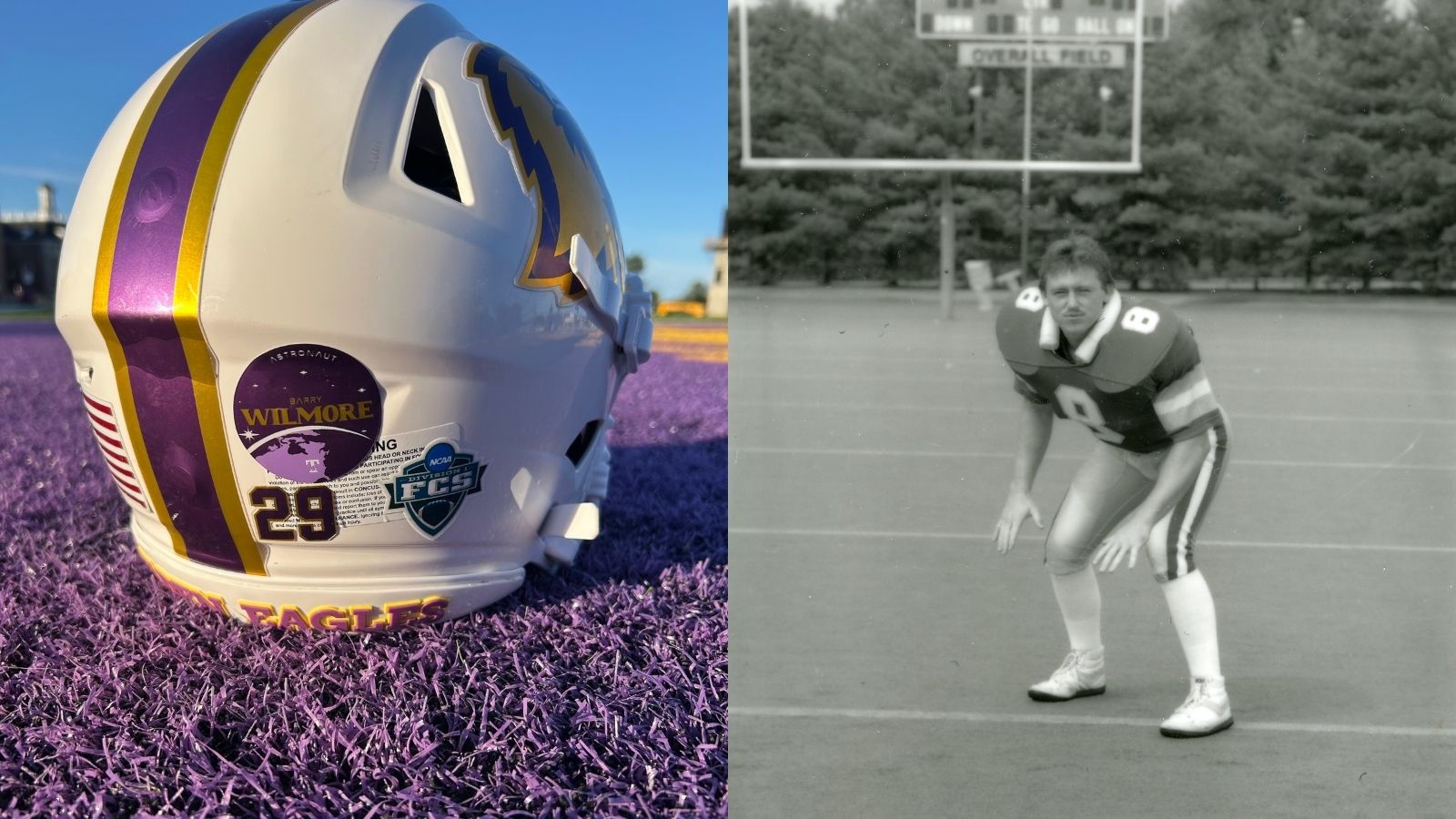
The stories the Wilmore family can tell about life at Tennessee Tech University span generations and the distances Tech degrees have taken them go from accounting services for the U.S. Army, to leadership at one of the country’s largest vehicle manufacturers, to nursing and medical school and even into space.
Jack Wilmore was Eugene and Faye Wilmore’s first son to choose Tech, earning what was then known as a degree in industrial technology in 1984. It wasn’t long before Jack’s younger brother Barry came to Tech as well. The two called the fifth floor of Maddox Hall home during what was Jack’s sophomore year and Barry’s freshman year.
Barry prospered at Tech as well, playing as a walk-on in the Golden Eagle football team’s 1982 season and earning a name for himself on the field, all while earning an undergraduate degree in mechanical engineering in 1985 and then a master’s degree in electrical engineering at Tech.
Barry’s wife Deanna is also a Tech graduate, and although Barry says the two knew
each other during their time at Tech, their relationship didn’t blossom until later.
They ultimately married and started their own family.
The Wilmore family has deep roots at the university that continue to grow.
Watch a video interview with the Wilmore family »
Naval Aviator
Wilmore took his love of aviation and science and became a Naval Officer and pilot with the U.S. Navy, graduating from the United State Naval Test Pilot School. With more than 8,000 hours of flight time and 663 carrier landings in tactical aircraft, Captain Wilmore completed four operational deployments.
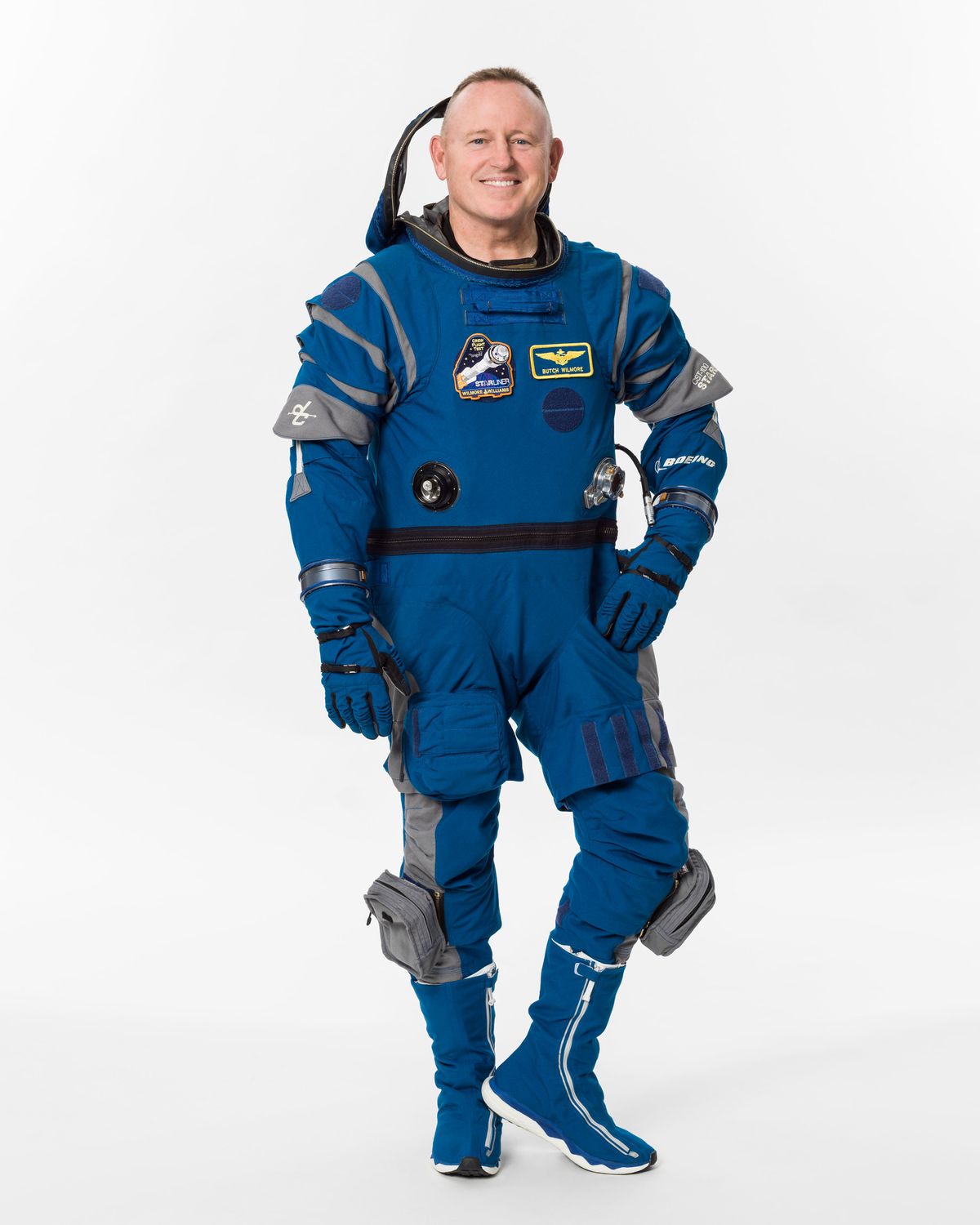
Test Pilot to Astronaut
Prior to being selected to participate in NASA’s astronaut program in 2000, Wilmore was also a flight test instructor for the U.S. Air Force Test Pilot School at Edwards Air Force Base. There, he helped develop the T-45 GoShawk jet aircraft trainer.Prior to being selected to participate in NASA’s astronaut program in 2000, Wilmore was also a flight test instructor for the U.S. Air Force Test Pilot School at Edwards Air Force Base. There, he helped develop the T-45 GoShawk jet aircraft trainer.
NASA Career
During his time with NASA, Wilmore completed three spaceflights, spending a total of 464 days in space.
Wilmore first launched to the International Space Station aboard a Russian Soyuz spacecraft in September 2014 as part of Expedition 41. He served as a Flight Engineer before taking command of the station in November with the arrival of the Expedition 42 crew. He returned to Earth in March 2015, after logging 167 days in space and completing four spacewalks totaling more than 25 hours.
Earlier in his career, Wilmore piloted the space shuttle Atlantis during the STS-129 mission in 2009, traveling 4.5 million miles across 171 Earth orbits.
Most recently, Wilmore and fellow astronaut Suni Williams launched aboard Boeing’s Starliner spacecraft on June 5, 2024, for its first crewed flight, arriving at the space station the next day. When NASA made the decision to return Starliner uncrewed, Wilmore and Williams continued serving as Expedition 71/72 crewmembers, returning to Earth in March 2025 aboard SpaceX’s Dragon spacecraft.
After 25 years of service, Wilmore retired from NASA on July 25, 2025, marking the end of a remarkable career dedicated to exploration, leadership and scientific discovery.
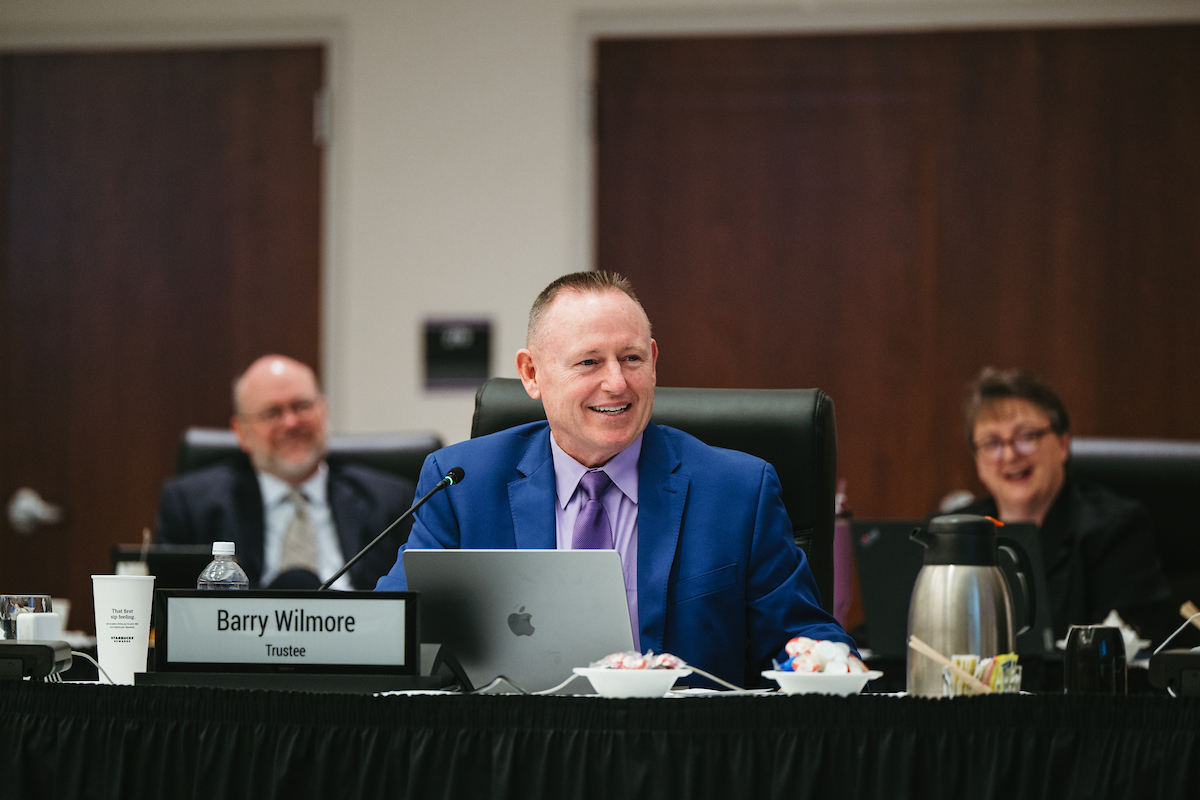
Achievements and Honors
In addition to his bachelor’s and master’s degrees from Tennessee Tech, Wilmore also holds a Master of Science degree in aviation systems from the University of Tennessee and was awarded an honorary doctorate degree from Tennessee Tech in 2012.
Throughout his decorated career, Wilmore has displayed a dedication to service, serving on Tennessee Tech University’s inaugural Board of Trustees (2017-2026). In 2025, he was awarded the university’s second-ever Order of the Eagle and was named Tennessean of the Year by the Tennessee Sports Hall of Fame.
In August of 2025, Tech’s Board of Trustees unanimously passed a resolution naming the university’s pedestrian walkway and plaza “Wilmore Way.”
His achievements in aeronautics, engineering and leadership have made him a distinguished figure in spaceflight, and he continues to inspire the Tennessee Tech community with his contributions to science and innovation.
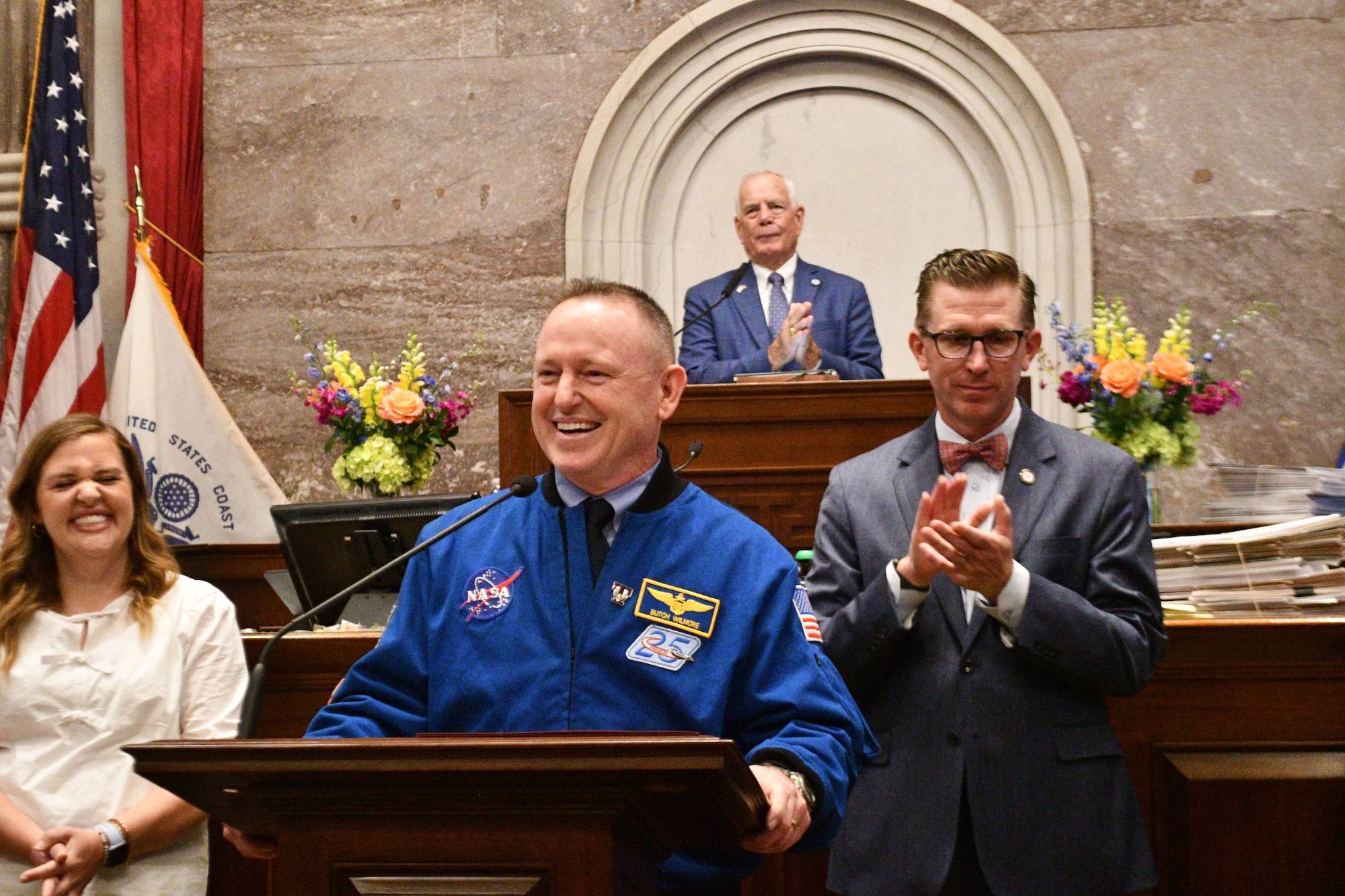
Other notable awards and achievements include:
The Legion of Merit; The Defense Superior Service Medal; Defense Meritorious Service Medal; two Navy Meritorious Service Medals; five Air Medals, three with Combat 'V' designation; six Navy Commendation Medals, three of which also hold the Combat 'V' designation; The NASA Distinguished Service Medal; two NASA Space Flight Medals and two Navy Achievement Medals.
NCAA Theodore Roosevelt Award (2018), University of Tennessee Centennial Alumni - Top 100 Graduates (2017), University of Tennessee Mechanical Aerospace & Biomedical Engineering (MABE) Hall of Fame Inductee (2017), University of Tennessee Accomplished Alumni Award (2015), Tennessee Technological University Outstanding Alumnus and Engineer of Distinction (2010), Tennessee Technological University “Sports Hall of Fame” Inductee for football (2003), U.S. Atlantic Fleet "Strike Fighter Aviator of the Year" (1999), Strike Fighter Wing Atlantic “Scott Speicher Award” for Weapons Employment Excellence (1998), United States Atlantic Fleet “Light Attack Wing One - Pilot of the Year” (1991), Initial Naval Flight Training “Commodores List with Distinction” (1987-88), Aviation Officer Candidate School (AOCS) “Distinguished Naval Graduate” (1986).
